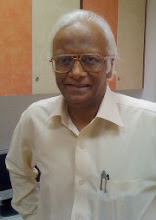.jpg)
HOW TO PRACTISE: THE WAY TO A MEANINGFUL LIFE
by the Dalai Lama
The Need for Peace and Kindness
I travel to many places around the world, and whenever I speak to people, I do so with the feeling that I am a member of their own family. Although we may be meeting for the first time, I accept everyone as a friend. In truth, we already know one another, profoundly, as human beings who share the same basic goals: We all seek happiness and do not want suffering.
TWO WAYS TO HAPPINESS
There are two ways to create happiness. The first is external. By obtaining better shelter, better clothes, and better friends we can find a certain measure of happiness and satisfaction. The second is through mental development, which yields inner happiness. However, these two approaches are not equally viable. External happiness cannot last long without its counterpart. If something is lacking in your perspective— if something is missing in your heart—then despite the most luxurious surroundings, you cannot be happy. However, if you have peace of mind, you can find happiness even under the most difficult circumstances.
Material advancement alone sometimes solves one problem but creates another. For example, certain people may have acquired wealth, a good education, and high social standing, yet happiness eludes them. They take sleeping pills and drink too much alcohol. Something is missing, something still not satisfied, so these people take refuge in drugs or in a bottle. On the other hand, some people who have less money to worry about enjoy more peace. They sleep well at night. Despite being poor in a material sense, they are content and happy. This shows the impact of a good mental attitude. Material development alone will not fully resolve the problem of humanity's suffering.
In this book I offer you, the reader, valuable tech- niques from Tibetan traditions which, if implemented in daily practice, lead to mental peace. As you calm your mind and your heart, your agitation and worry will naturally subside, and you will enjoy more happiness. Your relationships with others will reflect these changes. And as a better human being, you will be a better citizen of your country, and ultimately a better citizen of the world.
KINDNESS
We are all born helpless. Without a parent's kindness we could not survive, much less prosper. When children grow up in constant fear, with no one to rely on, they suffer their whole lives. Because the minds of small children are very delicate, their need for kindness is particularly obvious.
Adult human beings need kindness too. If someone greets me with a nice smile, and expresses a genuinely friendly attitude, I appreciate it very much. Though I might not know that person or understand their language, they instantly gladden my heart. O n the other hand, if kindness is lacking, even in someone from my own culture whom I have known for many years, I feel it. Kindness and love, a real sense of brotherhood and sisterhood, these are very precious. They make community possible and thus are crucial in society.
THE HUMAN POTENTIAL
Each of us has a valid sense of self, of "I." We also share fundamental goals: We want happiness and do not want suffering. Animals and insects also want happiness and do not want suffering, but they have no special ability to consider how to achieve deeper happiness or overcome suffering. As human beings, endowed with this power of thought, we have this potential, and we must use it.
On every level—as individuals, and as members of a family, a community, a nation, and a planet—the most mischievous troublemakers we face are anger and egoism. The kind of egoism I refer to here is not just a sense of I, but an exaggerated self-centeredness. No one claims to feel happy while being angry. As long as anger dominates our disposition, there is no possibility of lasting happiness. In order to achieve peace, tranquility, and real friendship, we must minimize anger and cultivate kindness and a warm heart. This can be achieved through the practices I will describe in this book.
Developing a warm heart ourselves can also transform others. As we become nicer human beings, our neighbors, friends, parents, spouses, and children experience less anger. They will become more warm-hearted, compassionate, and harmonious. The very atmosphere becomes happier, which promotes good health, perhaps even a longer life.
You may be rich, powerful, and well-educated, but without these healthy feelings of kindness and compassion there will be no peace within yourself, no peace within your family—even your children suffer. Kindness is essential to mental peace. As you will see in the pages ahead, the central method for achieving a happier life is to train your mind in a daily practice that weakens negative attitudes and strengthens positive ones.
The big question is whether or not we can practice kindness and peace. Many of our problems stem from attitudes like putting ourselves first at all costs. I know from my own experience that it is possible to change these attitudes and improve the human mind. Though it is colorless, shapeless, and sometimes weak, the human mind can become stronger than steel. To train the mind, you must exercise the patience and determination it takes to shape that steel. If you practice improving your mind with a strong will and forbearance by trying, trying, trying, no matter how many difficulties you may encounter at the beginning, then you will succeed. With patience, and practice, and time, change will come.
Do not give up. If you are pessimistic from the beginning, you cannot possibly succeed. If you are hopeful and determined, you will always find some measure of success. Winning the gold medal does not matter. You will have tried your best.







.jpg)






